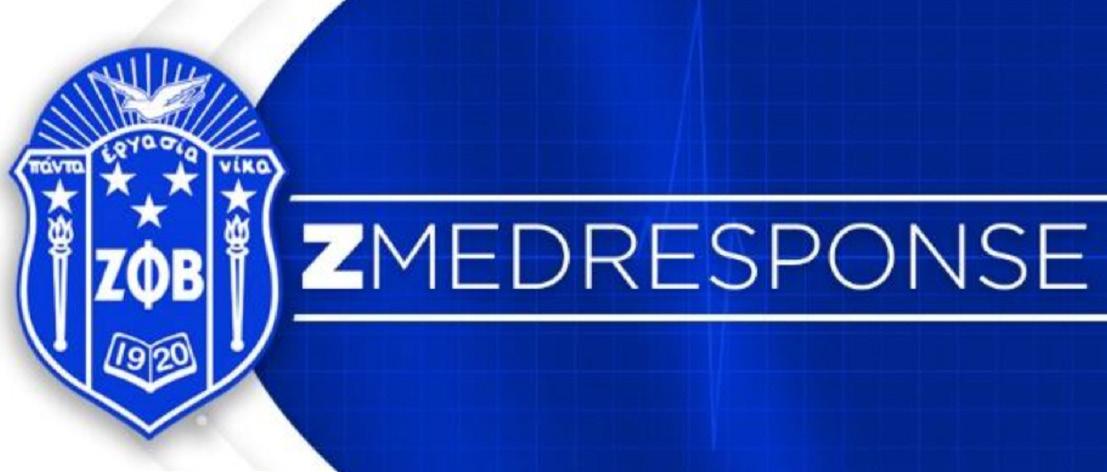
7 minute read
The COVID-19 Vaccination
Photo by CDC on Unsplash
THE NUMBER ONE GOAL
Advertisement
of vaccinations is to save lives, save families, and protect communities against disease spread, as well as provide meaningful protection to our future generations.

5 Things You Need to Know NOW
By Dr. Raina E. Groover
National Medical Emergency Response Team Director

Given there is great hesitation by some on taking any vaccination at this time, especially in our African American communities, it is vital to provide current information and awareness on what vaccinations are available to help make informed decisions on what is right for you.
General understanding about vaccines is that they are primarily created to help protect and provide immunity against infectious diseases. The number one goal of vaccinations is to save lives, save families, and protect communities against disease spread, as well as provide meaningful protection to our future generations.
As we know, vaccines help our bodies’ immune systems fight infections faster and more effectively by protecting us from serious and life-threatening diseases. Vaccines trigger a response from our immune system that helps our body fight off certain germs and then remembers these germs so that it can attack if it comes back again, thus providing long term immunity overall.
Now that COVID-19 vaccines are here, it is important to keep sharing trusted information with our friends, families, and communities.
The Centers for Disease Control and Prevention is a highly recommended site to visit for accurate and most up-to-date information on all things COVID-19 and vaccinations.
https://www.cdc.gov/vaccines/covid-19/ index.html
As you are aware, Pfizer currently has a vaccination called Pfizer-BioNTech COVID-19 that was granted on Dec. 13, 2020 by the U.S. Food and Drug Administration (FDA) for an Emergency Use Authorization (EUA). This vaccine has been shown to be safe and effective for use in persons over 16 years of age. Findings from studies on this vaccine have demonstrated that the known and potential benefits of this vaccine outweigh the known and potential harms of becoming infected with the coronavirus disease COVID-19.
HERE ARE FIVE THINGS YOU NEED TO KNOW ABOUT THIS VACCINATION:
1. This vaccination is preservative-free made with 0.9% sodium chloride (normal saline) 2. Multi-dose vial. 5 doses per vial. Dosage is 0.3ml. Mix before use. 3. Approved for use of persons 16 years of age and older. 4. Scheduled dosing is a two-dose series separated by 21 days. Both dose administration must be a Pfizer vaccine product. 5. The vaccination is administered as an intramuscular (IM) injection in the deltoid muscle (upper arm/top of shoulder).
For more information on the Pfizer-BioNTech COVID-19 vaccine please visit:
https://www.cdc.gov/vaccines/covid-19/ info-by-product/pfizer/index.html
On Dec. 18, 2020 the U.S. Food and Drug Administration (FDA) furnished an Emergency Use Authorization (EUA) for a second vaccine called the Moderna COVID-19 vaccine, for use of the prevention of coronavirus disease 2019, which is caused by a severe acute respiratory syndrome coronavirus 2 (SAR-CoV-2) (coronavirus that caused COVID-19). This EUA permits this vaccination to be distributed in the U.S. for use in persons 18 years of age and older.
FOUR KEY FACTS ON THE MODERNA COVID-19 VACCINE:
1. Scheduled dosing is a 2-dose series separated by 28 days. All series started with a a Moderna COVID-19 vaccine should be completed with the same Moderna vaccine product. 2. The vaccine is an intramuscular (IM) injection administered in the deltoid muscle (upper arm/top of shoulder) 3. Multidose vial. 10 doses per vial. Dosage is 0.5ml. 4. Approved for use of persons 18 years of age and older
For more information on the Moderna COVID-19 vaccine please visit:
https://www.cdc.gov/vaccines/covid-19/ info-by-product/moderna/index.html
Johnson and Johnson’s Janssen (J&J/ Janssen) also has a single dose COVID-19 vaccination for administration. Reported risks of rare blood clots in women younger than 50 years old with low platelet count after the vaccination was reported, and administration was briefly halted. After further careful evaluation and review, the CDC and the US Food and Drug Administration has resumed the use of Johnson and Johnson’s Janssen COVID-19 vaccination in the United States as of April 23,2021.
For further Johnson & Johnson Janssen COVID-19 vaccination information and updates please visit:
https://www.cdc.gov/coronavirus/2019ncov/vaccines/safety/JJUpdate.html# symptoms-list-question
Other vaccinations such as the COVID-19 AstraZeneca vaccine is additionally on the horizon however product information and full fact sheet is not yet available. Please continue to check the CDC website for updates and vaccine education.
Currently clinical trials are being conducted to evaluate additional COVID-19 vaccines in many thousands of study participants. It is important to have a diverse study group to offer a true reflection of vaccination outcomes in various ethnic groups because these trials will generate scientific data and other information that will be used by FDA to determine vaccine safety and effectiveness for all. Clinical trials on all COVID-19 vaccine participants are conducted according to a rigorous standard set forth by FDA guidelines and protocols. We can be assured, if the FDA determines that a vaccine meets its safety and effectiveness standards, it can make these vaccines available for use in the United States by approval through an EUA.
After the FDA determines that a COVID-19 vaccine participant is safe and effective, the Advisory Committee on Immunization Practices (ACIP), which is a committee composed of medical and public health experts, reviews available data before making vaccine recommendations to CDC.
The Advisory Committee on Immunization Practices (ACIP) recommends that the COVID-19 vaccine be administered to health care personnel and residents of long-term care facilities in the initial phase of this COVID-19 vaccination program process.
Vaccination of COVID-19 is offered to persons regardless of history of prior symptomatic or asymptomatic SARS-CoV-2 infection. If a person has a current SARS-CoV-2 infection, vaccination should be deferred until recovery from acute illness and criteria have been met to discontinue isolation. There is no minimal interval between infection and vaccination. Current evidence suggests that reinfection is uncommon in the 90 days after initial infection, and persons with documented acute infection in the preceding 90 days may defer vaccination until the end of this period. Persons with known SARS-CoV-2 exposure should defer vaccination until the quarantine period has ended to avoid exposing healthcare personnel or other persons during vaccination visits.
https://www.cdc.gov/coronavirus/2019ncov/hcp/dispoistion-in-home-patients. html
https://www.cdc.gov/coronavirus/2019ncov/hcp/duration-isolation.html
As it pertains to persons with underlying medical conditions, vaccines may be administered as long as there are no noted contraindications to vaccinations. Persons with HIV infection, and those who have other immunocompromising conditions or who take immunosuppressive medications might be at increased risk for severe COVID-19. Data is not currently available to establish safety
BEFORE ANY VACCINATION,
it is recommended providers should counsel vaccine recipients about expected local and systemic post-vaccination symptoms.
and effectiveness of vaccines in these groups. These individuals may still receive COVID-19 vaccine unless otherwise contraindicated. However this group should be counseled on vaccine safety and efficacy in immunocompromised persons, potential for reduced immune responses, and the need to follow all current guidelines to protect themselves against COVID-19.
https://www.cdc.gov/coronavirus/2019ncov/need-extra-precautions/people-withmedical-conditions.html
There is no data on the safety of COVID-19 vaccines in pregnant women. If a woman is part of a group who is recommended to receive a COVID-19 vaccine and is pregnant, she may choose to be vaccinated. A discussion with
your healthcare provider is recommended to help make an informed decision.
https://www.cdc.gov/coronavirus/2019ncov/need-extra-precautions/pregnancybreastfeeding.html
Before any vaccination, it is recommended providers should counsel vaccine recipients about expected local and systemic post-vaccination symptoms. Unless a person develops a contraindication to vaccination, they should be encouraged to complete the vaccine series even if they develop post-vaccination symptoms in order to optimize protection against COVID-19.
Given the current limited information on such information as to how well the vaccine works in the general population, how much it may reduce disease, severity, or transmission, and how long protection lasts, vaccinated persons should continue to follow all current guidelines to protect themselves and others which include:
• Wearing a face mask • Staying at least six feet away from others • Avoid large crowds • Frequent handwashing • Follow CDC guidelines • Follow quarantine guidance after an exposure to someone with COVID-19 • Follow any applicable workplace or school guidance
https://www.cdc.gov/coronavirus/2019ncov/index.html
This information provided is to dispense further insight and awareness on COVID-19 vaccinations according to the CDC. It is highly advised to consult with your healthcare provider regarding vaccination and whether it is a good fit for you. While vaccination is still in a novel stage, presentation of vaccination provides hope for future vaccination administration and a means to address this still ongoing pandemic in the midst of unknowns.
Moreover, having a strategic plan to conduct a culturally tailored vaccination that addresses widespread issues of historical disadvantage, low health literacy, and mistrust is really crucial in this time of need in our country. It allows not only to build the type of trust that is so warranted, yet sets a framework for belief to move forward with our current research and treatment, not just for COVID-19, but for all future advances in medicine to come forth.
For additional and more in-depth information and resources on COVID-19 and vaccinations please visit:
https://www.cdc.gov/vaccines/covid-19/ hcp/engaging-patients.htm
https://www.cdc.gov/vaccines/covid-19/ health-systems-communication-toolkit. html
FDA EUA RESOURCES:
https://www.fda.gov/media/144412/down load
https://www.fda.gov/emergency-prepard ness-and-response/counterterrorism-andemerging-threats/coronavirus-disease2019-covid-19
https://www.fda.gov/emergency-prepared ness-and-response/mcm-legal-regulatoryand-policy-framework/emergency-useauthorization#covid19euas
NATIONAL INSTITUTES OF HEALTH COVID-19 INFORMATION:
https://obssr.od.nih.gov/wp-content/up loads/2020/12/OBSSR_VaccineWhite Paper_FINAL_508.pdf
https://www.nhlbi.nih.gov/news/2020/com munity-engagement-builds-needed-trustscience-and-scientists
https://www.facebook.com/87057506193/ videos/2898845167049112










